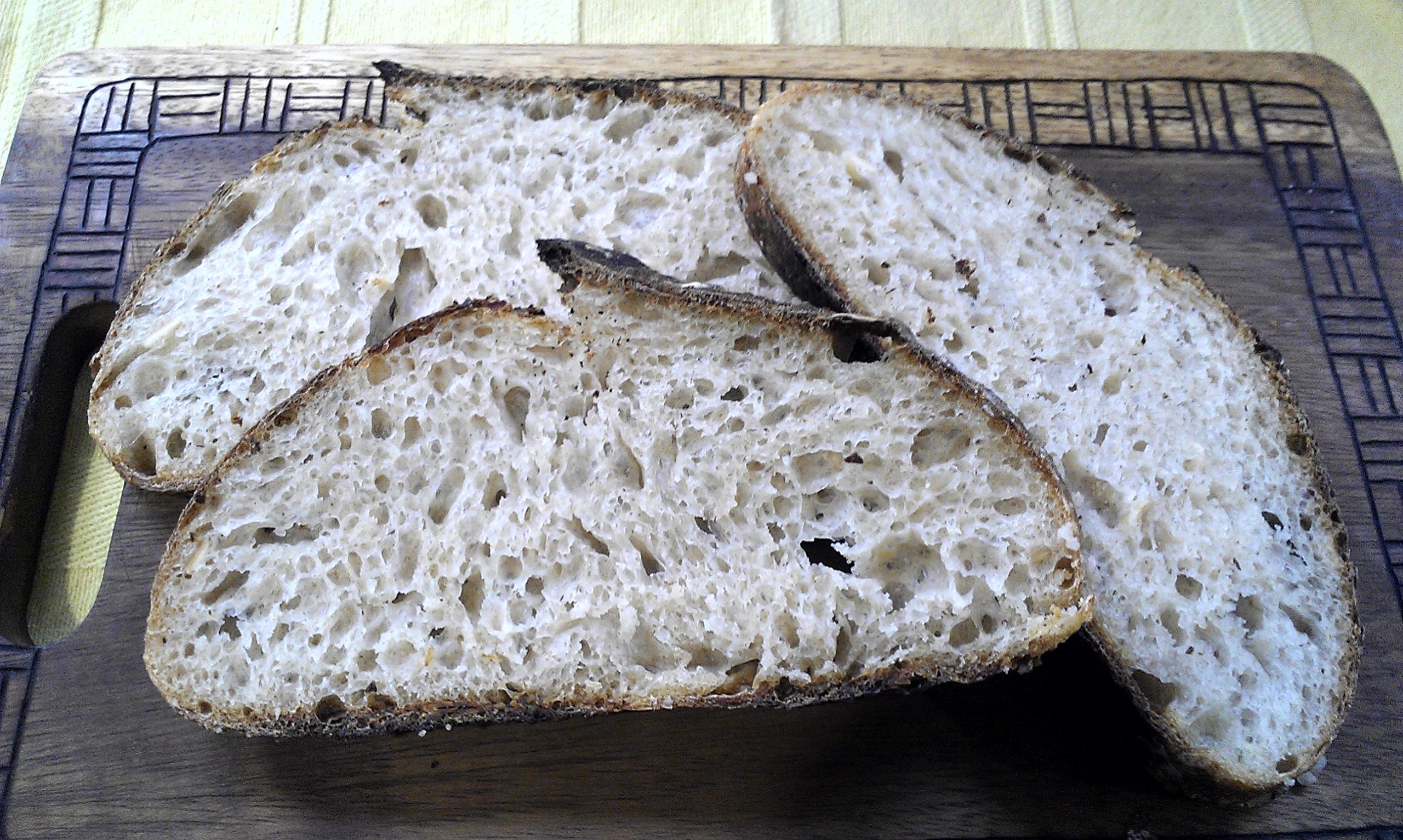
Why Are They So Different?

Hi everyone, hope all of you there are happily baking the weekend away. Anyhow, this is something that I have just baked and it really pique my interest on knowing the answer and I hope someone out there would be able to enlighten a newbie like me.
Alright, so I presume some of you have seen my post on "Understanding Local Bread Flour" a couple of days ago. This bread is from the same dough that I made extra the other day. And because I wanted to have fresh bread twice weekly without having to make a dough twice either....I have decided to make a large one and divided it into 2 portions, 1 boule and 1 oval.
I made this dough a week ago and baked the boule on Wednesday. The bread was under-proved a bit but ended up looking good. Though the crumbs were a little chewy. Then I baked the oval one just now, smaller in size, did not bloom so much like the boule as it was well proved in the fridge for about a week now. Some big bubbles were on the surface (now the bottom of the bread) but the crumbs turned out to be way better than the boule. Flavour profile is also way better than the boule, what gives?
Could this be the benefit of a very long, cold fermentation? And if the answer is yes, I will be going with this direction from now on. Many thanks in advance.
Wednesday's Bake Today's Bake (The better half)


Best Regards,
Sandy


Looks like Wednesday's bake was underproofed which will give you the uneven crumb and tunnels many times. I like to bulk ferment my dough in the refrigerator for 12-24 hours but I have gone 3 days some times. I find this develops the flavor much better. When you cold retard the dough it slows down the chemical process in the starter/yeast and helps develop more flavor. I'm sure someone else can give you a more scientific explanation. You do have to be careful with certain doughs that have a lot of whole grains like rye which tends to ferment much quicker and may not last more than 24 hours fermenting in the refrigerator. Also I have had some experiences with rye and beer where a long fermentation caused the final dough to be sour beyond believe. Anyway, looks like your current bake looks perfect so keep experimenting.
Thank you for your advice and yes, I do know the benefits of cold fermentation. Truth to be told, this is the only method that I could give all my sourdough a better taste profile as I live in the tropics, things are moving real quick with the warm weather here.
I am having a 100% hydration, white starter here and would occasionally add in some rye flour to improve the flavour. Also, I am baking mostly with Vermont or Norwich Sourdough, whichever I felt like on baking day. Though, I'd also add in some seeds,grains or fruits. I had a whole rye grain bread last week and yes, you were right, it fermented faster as I only kept it in the fridge overnight for less than 18 hours and it turned out pretty well.
At this point, I am not sure if the scientific part of baking is intriguing me more into finding the answer or is it just my obsession that is taking over but one thing is for sure is that I am hoping to bake some real good breads and I really wanna do this one thing right : )
temperatures so being there a very long time helps a lot. My rye sour makes better bread after it has been stored for 9 -16 weeks than it does at 1-8 weeks. Looks like you have found a way to make once but bake twice! Both of them look very good. Well done and happy baking